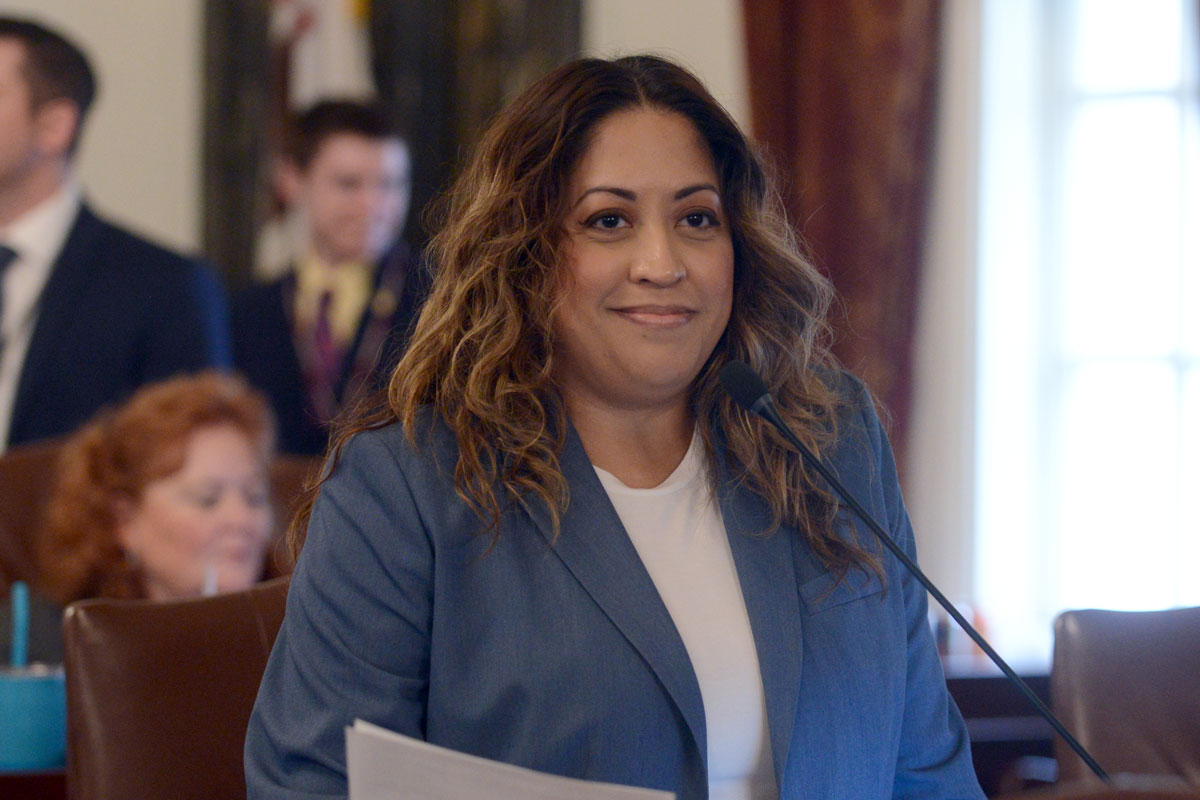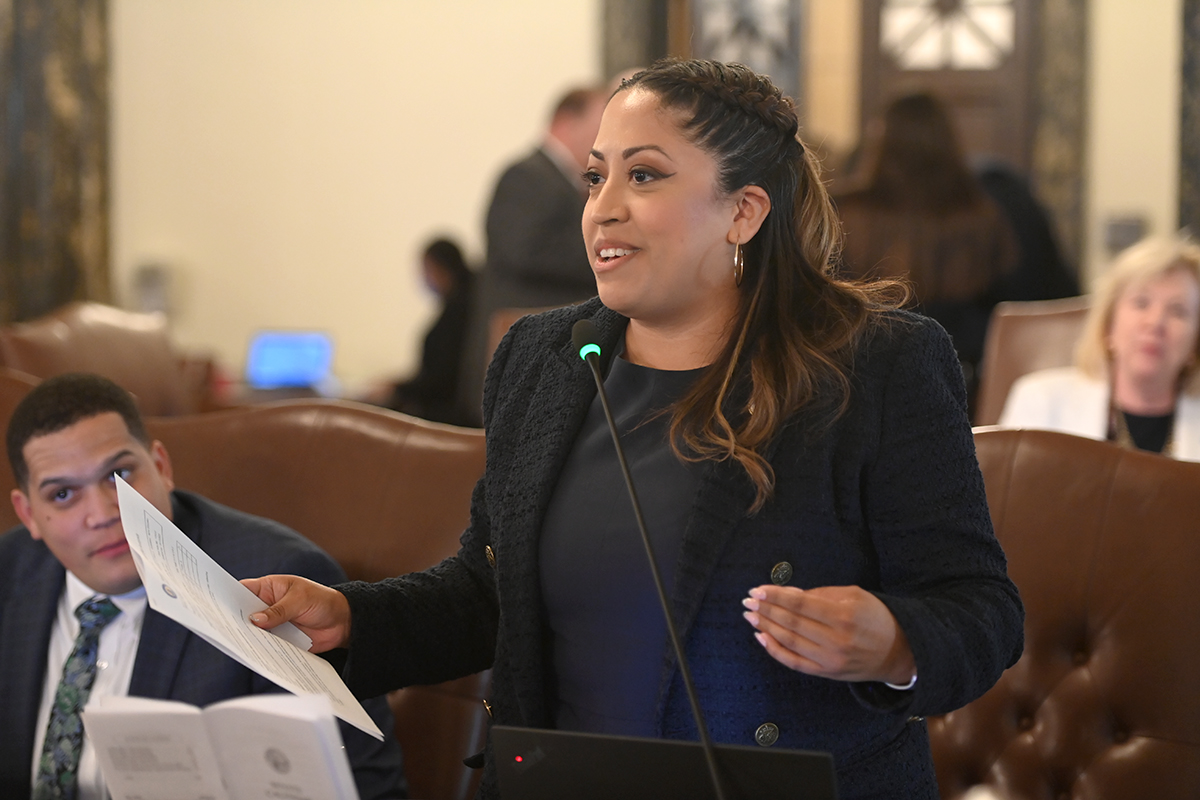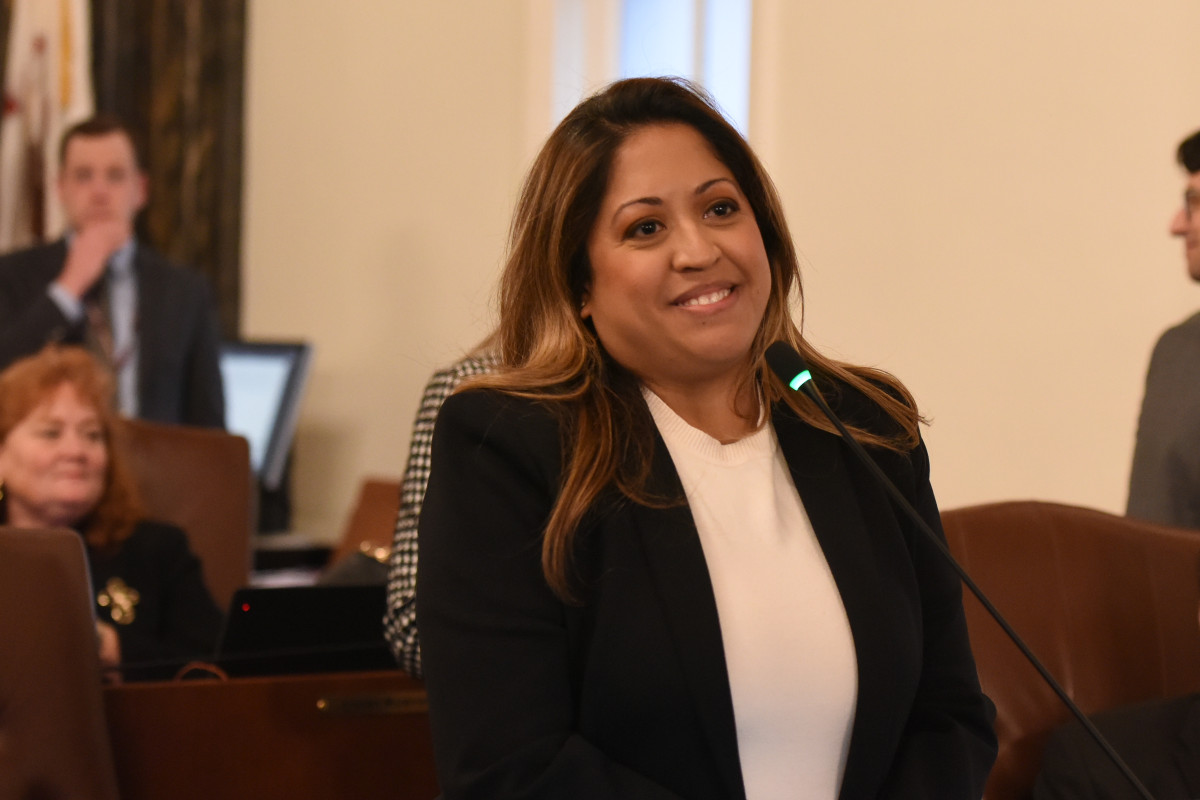Villanueva welcomes funding to strengthen mental health services for youth across Illinois
- Details
- Category: News
 CHICAGO –State Senator Celina Villanueva announced more than $1 million was awarded to Alivio Medical Center, Chicago Public Schools and Cicero School District 99 through the Illinois Department of Public Health to support post-pandemic child and adolescent mental health.
CHICAGO –State Senator Celina Villanueva announced more than $1 million was awarded to Alivio Medical Center, Chicago Public Schools and Cicero School District 99 through the Illinois Department of Public Health to support post-pandemic child and adolescent mental health.
“Our youth were presented with numerous challenges during the pandemic and need direct resources for support,” said Villanueva (D–Chicago). “This funding will allow us to strengthen school-based programs and local agencies that serve the mental health needs of young people in our district.”
The grants – funded by the American Rescue Plan Act and additional state funding – are intended to help schools and local agencies improve student care through workforce enhancements, developing frameworks to prevent adverse childhood experiences, interventions to assist children suffering from trauma, and training for medical and school staff to expand adolescent mental health resources.
“This funding has the opportunity to help combat the mental health crisis that our youth are battling every day,” said Villanueva. “We will also be able to provide education and support for teachers as they are often the first to notice a need for intervention.”
Over $9 million was awarded to 40 applicants across the state through this round of funding. For more information about the grant recipients, click here.
Villanueva on assault of alderperson: I am appalled
- Details
- Category: News
 CHICAGO – State Senator Celina Villanueva (D – Chicago) released the following statement after learning of the assault of Alderwomen Julia Ramirez and her aide during a protest in the 12th Senate District as they were discussing the new construction of a migrant tent city with local residents:
CHICAGO – State Senator Celina Villanueva (D – Chicago) released the following statement after learning of the assault of Alderwomen Julia Ramirez and her aide during a protest in the 12th Senate District as they were discussing the new construction of a migrant tent city with local residents:
“I am appalled to learn of the physical attack against Alderwoman Ramirez and an aide as they met with local residents to hear concerns regarding the construction of a shelter for asylum seekers. While I support peaceful protest and freedom of speech, violence is unacceptable.”
Senate Latino Caucus joins call for federal government to expand work authorizations for asylum seekers
- Details
- Category: News

CHICAGO – Members of the Illinois Legislative Latino Caucus (Senate) joined the call from business and industry partners, including the Illinois Restaurant Association and Illinois Manufacturers’ Association, for the U.S. Department of Homeland Security to streamline work authorizations for eligible asylum seekers who are ready and eager to work in Illinois.
“I am proud that in Illinois, we step up for those in need and live out our values as a welcoming state,” said joint Latino Caucus Chair Celina Villanueva (D-Chicago). “I am happy to see Senator Durbin fighting for this much-needed measure to provide our new neighbors with the resources they need to support themselves and their families.”
U.S. Senator Dick Durbin joined Illinois’ congressional delegation, alongside Governor JB Pritzker and industry partners Wednesday, to urge the Department of Homeland Security to use its authority to streamline the work authorization process for new arrivals and undocumented immigrants. If granted, states could be allowed to sponsor asylum seekers for employment in industries facing labor shortages such as hospitality and manufacturing.
“Sustainable job opportunities are available in every corner of our state with folks who are ready to work and contribute to our economy,” said State Senator Cristina Castro (D-Elgin). “When people can provide for themselves and their families, everyone wins. I echo my colleagues’ calls for this process to begin so that those seeking asylum finally have this opportunity.”
Villanueva: Local schools to receive over $23 million in evidence-based funding
- Details
- Category: News
 CHICAGO — State Senator Celina Villanueva announced that school districts across the Chicago area will receive over $23 million in funding to help address the financial challenges of recent years.
CHICAGO — State Senator Celina Villanueva announced that school districts across the Chicago area will receive over $23 million in funding to help address the financial challenges of recent years.
“This funding is a commitment to ensure underrepresented students are supported and can become lifelong learners,” said Villanueva (D-Chicago). “Through the evidence-based funding model, great strides are being made in addressing inequity in funding public schools in high-need areas.”
The funding comes from the 2017 Illinois Senate Democrat-backed evidence-based funding formula — an overhaul of the way the state funds K-12 education. The law made school funding more equitable by calculating the needs of individual school districts and basing its state revenue on those needs. The formula takes into account a district’s total enrollment, poverty rate and number of special education or English language learners, among other factors.
This year, a combined $23,357,289 will go to Chicago School District 299 — the district that serves CPS — benefitting hundreds of schools across the city and in the 12th Senate District.
The Fiscal Year 24 budget invested $350 million in funding into students’ success through the evidence-based funding model.
For more information on the FY 24 evidence-based funding distribution, visit the Illinois State Board of Education’s website.
More Articles …
Page 18 of 52




